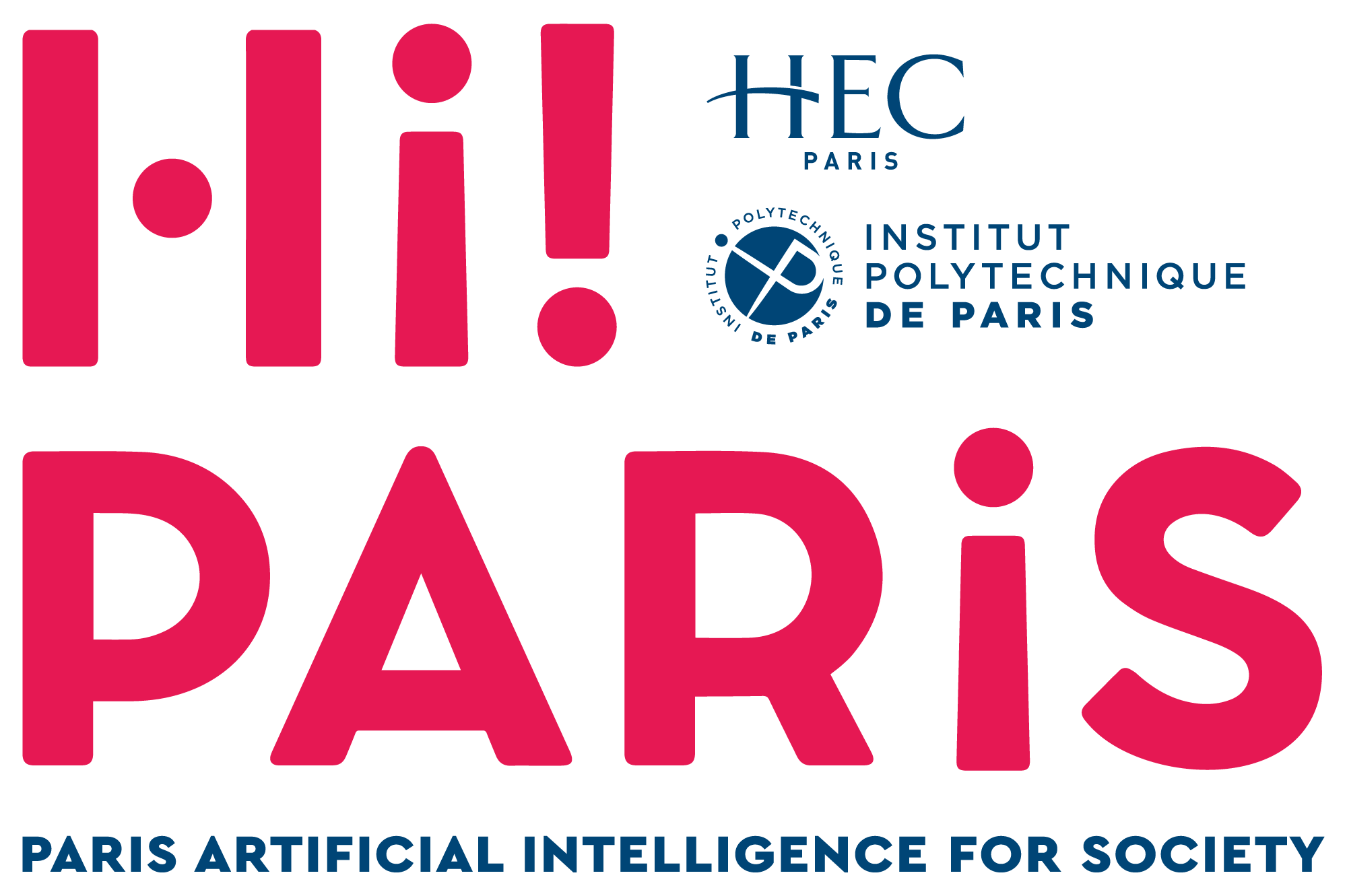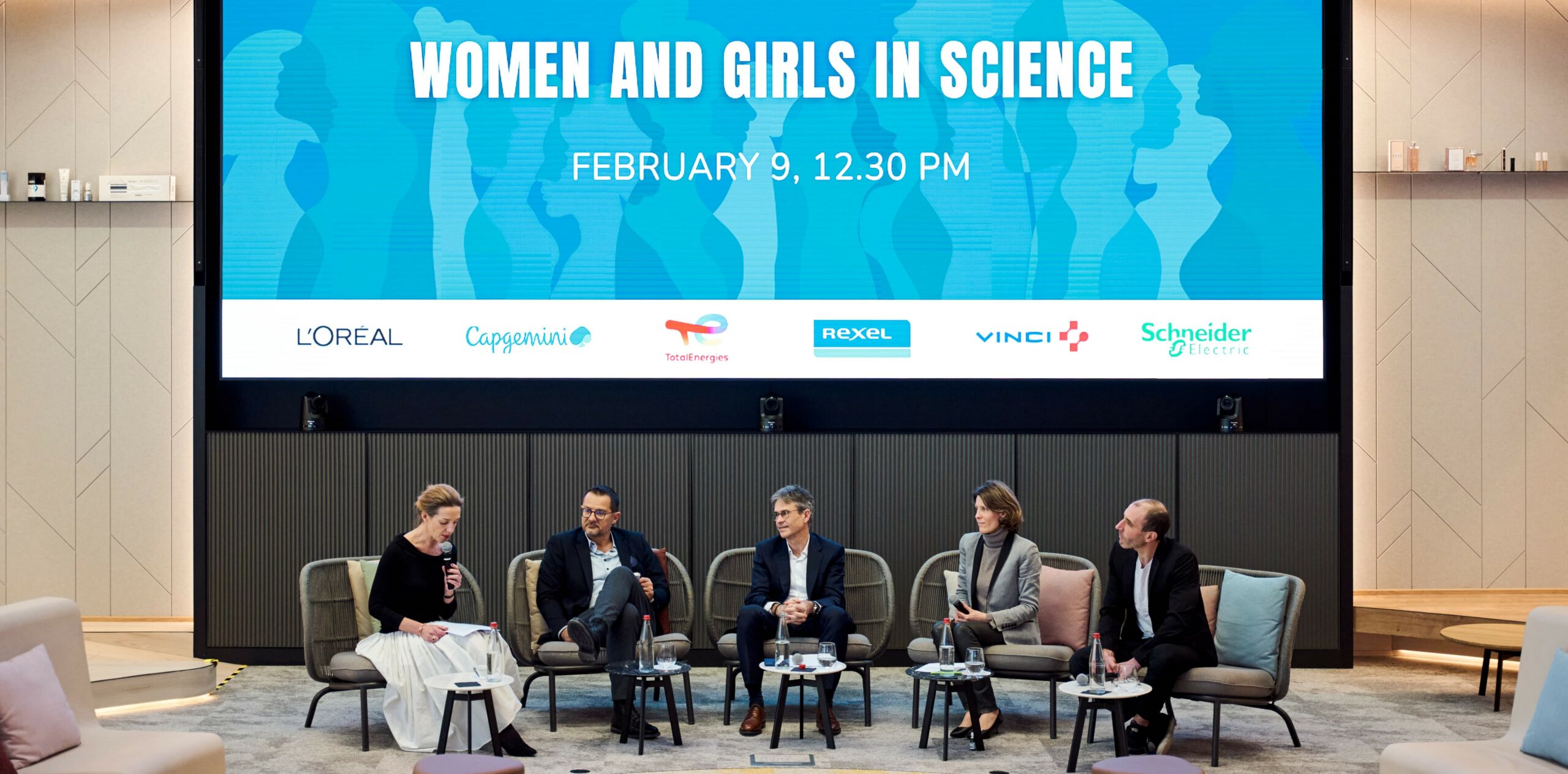Fostering Gender Equality in Science: The Role of Men and Boys
In recent years, discussions surrounding gender balance in science have gained momentum, shedding light on the underrepresentation of women in STEM fields and the need for inclusive practices. While much of the dialogue has rightly focused on empowering women and girls, it’s equally essential to acknowledge the pivotal role that men and boys play in driving meaningful change towards gender equality.
The gender balance debate has taken center stage in recent years, with discussions often dominated by all- or heavily-skewed female panels and audiences, particularly when addressing male-dominated industries.
To address this imbalance and challenge prevailing norms, the Hi! PARIS Center organized a roundtable discussion aimed at highlighting the critical need for both men and women to champion gender diversity in science. Contrary to conventional approaches, which often prioritize gender-balanced panels, the event deliberately featured a predominantly male panel to underscore the pervasive underrepresentation of women in executive decision-making units within scientific industries.
The decision to stage a heavily male-dominated event on the International Day of Women and Girls in Science was a deliberate choice to challenge perceptions and provoke thought. By showcasing the typical makeup of executive decision-making units, which are overwhelmingly male-dominated, the event aimed to emphasize the urgent need for systemic change and active participation from both men and women.
The distinguished panel, comprising experts from diverse backgrounds, engaged in a candid conversation about their roles in fostering gender equality and dismantling barriers within the scientific community. Moderated by Anne-Laure Sellier, Professor at HEC Paris, the discussion offered valuable insights and actionable strategies for creating a more inclusive and equitable environment in STEM fields.
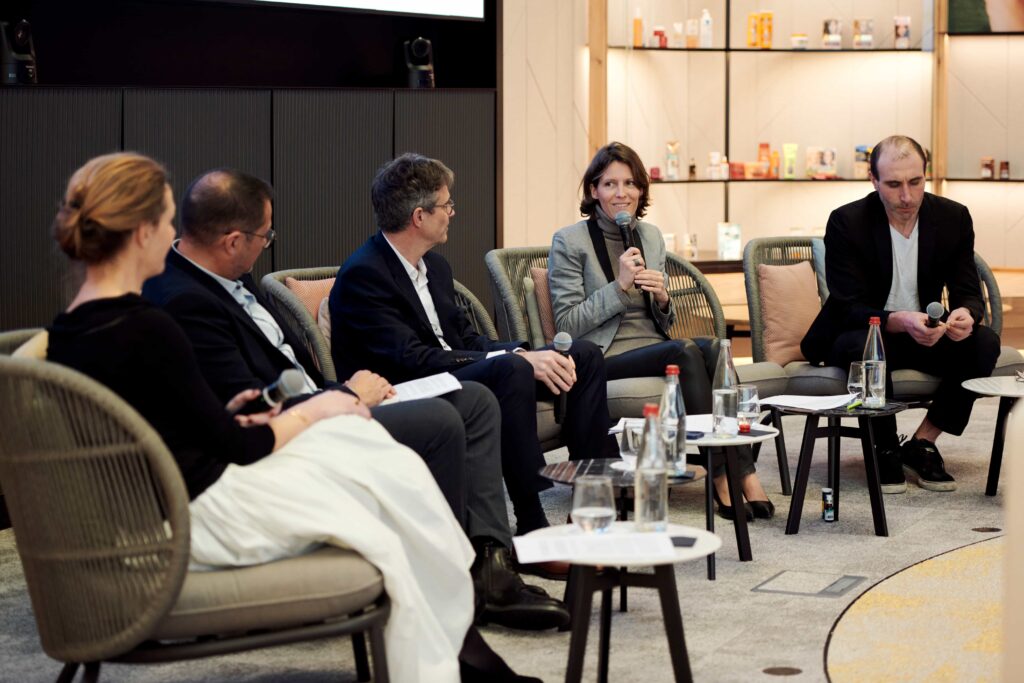
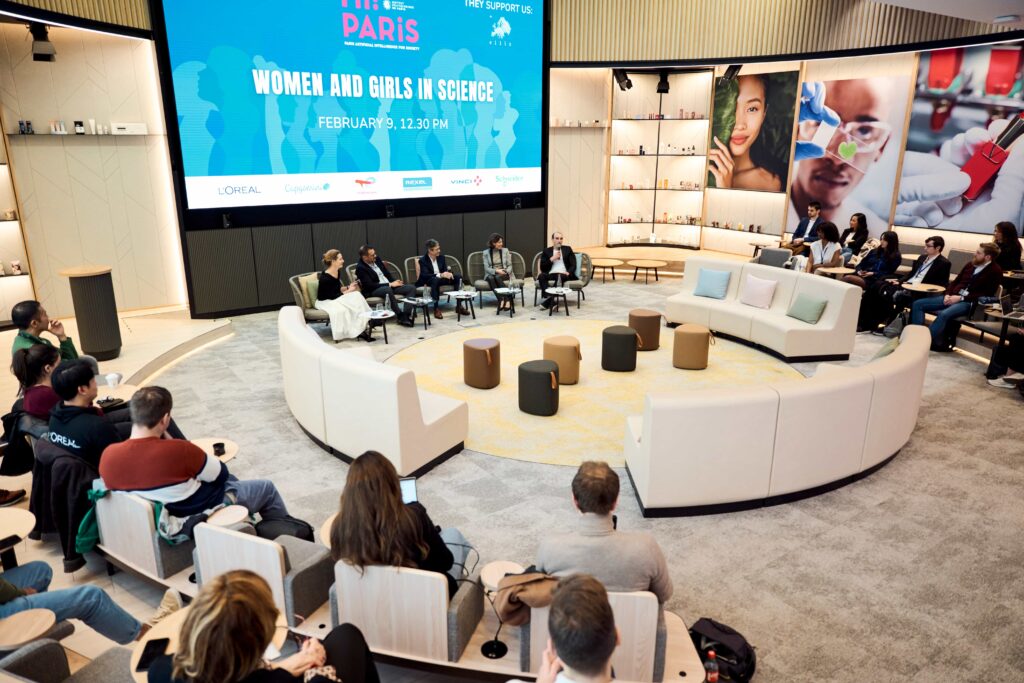
From left to right: Anne-Laure Sellier (HEC Paris), Patrick Masseglia (Capgemini), Stéphane Lannuzel (L’Oréal), Raphaelle Gautier (Hi! PARIS) and Dimitri Bettebghor (Schneider Electric).
Advancing Gender Balance
Panelists at the recent roundtable discussion underscored the critical need for collaborative efforts between men and women to foster inclusive environments conducive to innovation and progress. Stéphane Lannuzel stressed the importance of creating an inclusive environment where men and women collaborate seamlessly to propel projects forward. He emphasized that gender balance is not just about diversity; it’s about leveraging the full spectrum of talent available. According to Stéphane, “The real question is how men and women can create an environment in where we create, develop and go further with our projects TOGETHER.”
Echoing this sentiment, Patrick Masseglia emphasized the significance of fostering more opportunities for women within companies. He asserted, “Gender balance is key because we’re looking for talents, and if we look for talents in half of the population, the result will be biased. We have to foster, more and more, women positions in the company.”
Dimitri Bettebghor mentionned the importance of providing support to women facing obstacles in their careers. He emphasized the need for proactive intervention from both men and women to address challenges effectively. Dimitri stated, “In this global world, we must consider that when women encounter obstacles, it’s crucial for us to step in and provide support.”
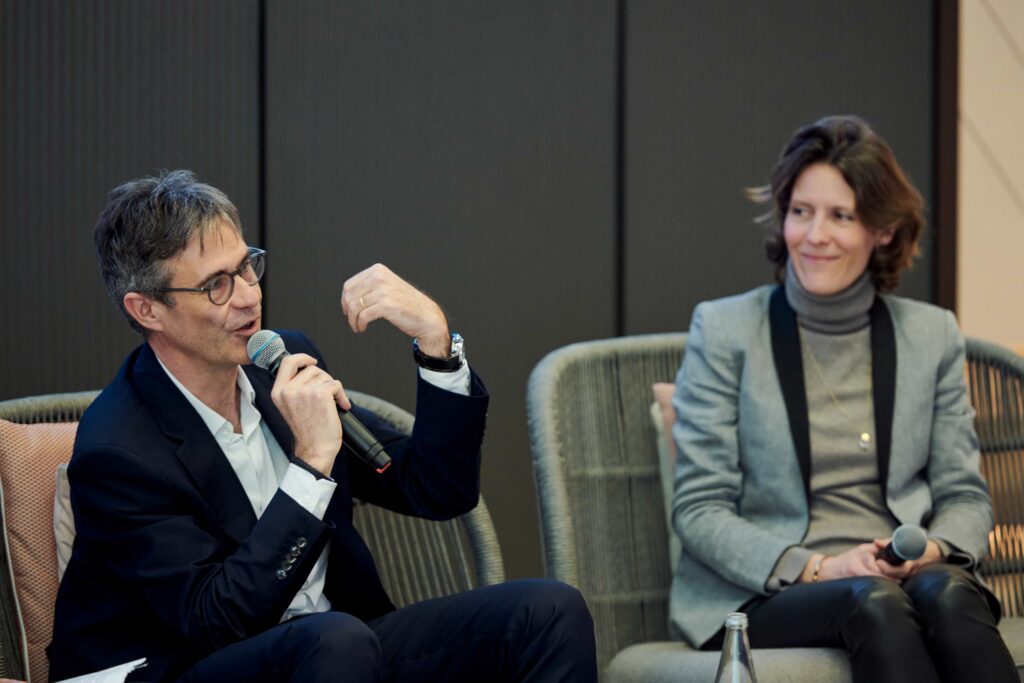
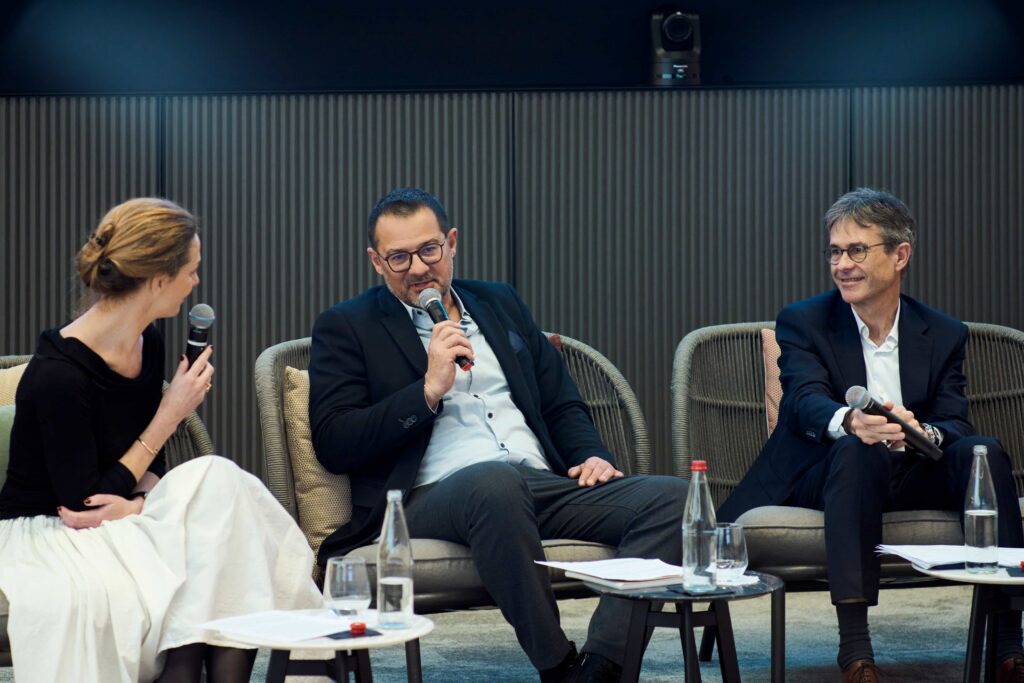
Embracing Collective Responsibility
In light of the ongoing discourse surrounding gender balance in scientific fields, it becomes imperative to delve deeper into the multifaceted dimensions of this issue. Anne-Laure Sellier‘s insightful remark resonates deeply with the societal underpinnings of gender balance within scientific fields, emphasizing that it extends far beyond gender-specific concerns. Her assertion underscores the collective responsibility inherent in addressing systemic disparities, urging a collaborative approach towards fostering inclusivity and diversity: “Gender balance is a societal issue; it cannot solely be the concern of women.”
In parallel, Raphaëlle Gautier‘s perspective sheds light on the pivotal role of educational institutions as transformative agents in reshaping the academic landscape. Recognizing schools as crucibles of talent, Raphaëlle talked about the implementation of strategic mechanisms aimed at amplifying the representation of women in academic leadership roles, thus nurturing an environment conducive to gender equity and advancement: “Schools are places of talent, and it’s imperative to establish mechanisms that promote the inclusion of more women as professors and researchers.”
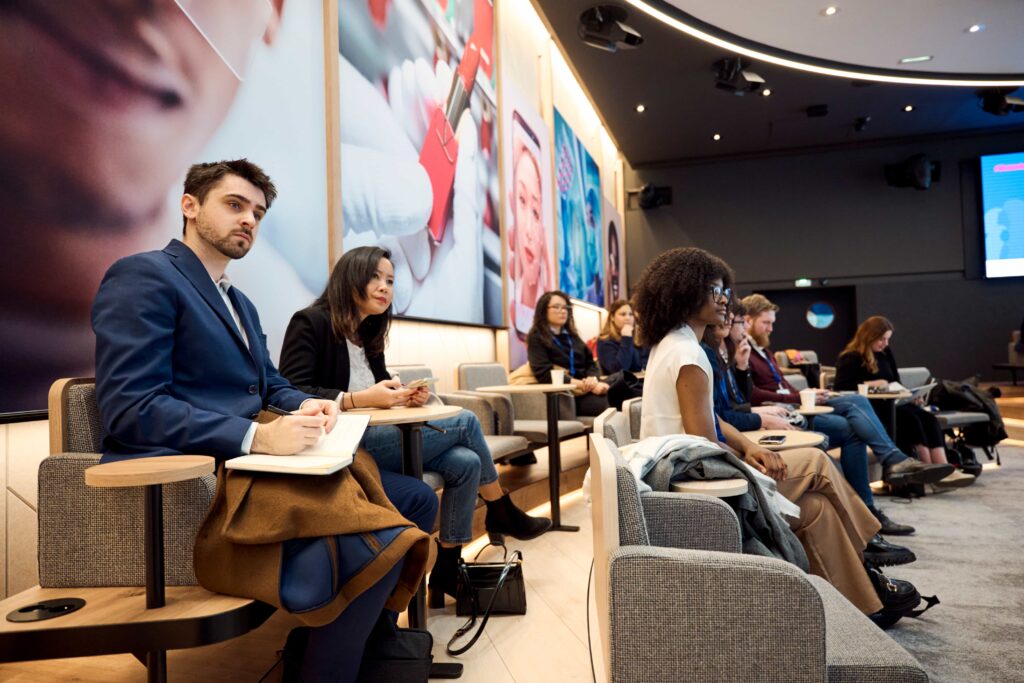

To conclude, the roundtable discussion on fostering gender equality in science underscored the importance of collective action and shared responsibility in addressing systemic disparities.
By embracing collaborative efforts and implementing strategic interventions at both institutional and societal levels, we can collectively pave the way for a more equitable and inclusive future in STEM careers.
To learn more about the insights shared during the roundtable, we invite you to watch the replay and join us in advancing the dialogue on gender balance in science:
